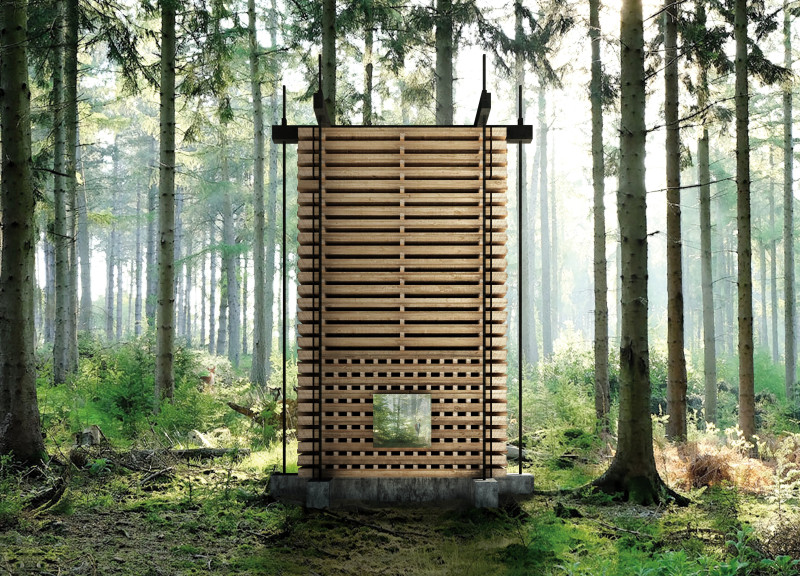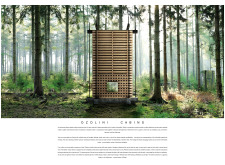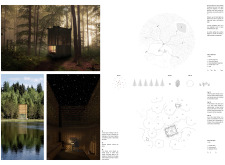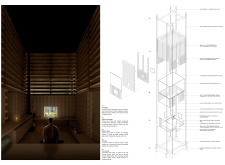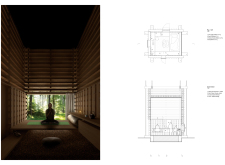5 key facts about this project
This proposal envisions a series of small retreat cabins situated within a pine forest in Latvia. The concept is rooted in simplicity, drawing inspiration from early forms of human shelter while adapting them to contemporary needs for meditation, reflection, and community. Each cabin is designed to support both solitary and shared activities, offering spaces for reading, prayer, and gathering in a natural setting.
Spatial Strategy
The cabins are arranged to foster a close relationship with the forest environment. Interior layouts emphasize focused activities, while communal spaces, including a central campfire area, encourage interaction among visitors. Daytime use relies on expansive glazing that frames views of the forest canopy, while solar-lit pathways ensure safe movement after dark. At night, the cabins act as illuminated markers within the wooded landscape, creating a distinct presence while maintaining a subdued atmosphere.
Materiality and Sensory Qualities
Material selections reinforce the cabins’ dialogue with their surroundings. Stacked lumber provides structural stability and continuity with the forest, while vertical pine boards line the interiors to improve acoustics and enhance spatial warmth. Flooring made from compressed tea leaves bonded with natural resin introduces both tactile variation and a subtle earthy aroma. Above 2.1 meters, double-glazed panels admit natural light and mediate between interior comfort and exterior exposure, ensuring year-round usability while sustaining visual connections to the landscape.


